- Home
- Sherwood Smith
Danse De La Folie Page 3
Danse De La Folie Read online
Page 3
“Miss Lucretia Bouldeston.” Kitty sat in the chair opposite Clarissa, observing her face.
“I think we might once have been introduced,” Clarissa said slowly. “But I was not aware of a betrothal.”
“Nothing has been inserted into the papers.” Kitty’s gaze shifted around the room. “It is more in the nature of an Understanding.”
Mrs. Finn entered at that moment, leading a train of three servants.
A massive table with lion claw legs and impressive inlay was soon hidden by a damask tablecloth, and set with enough food for five men. Clarissa forced herself to eat, and discovered soon that the effort repaid her with a considerable lessening of her headache. That and Kitty’s consideration (for after a reflective, wide-eyed gaze, she kept quiet) contributed to a diminishment of illness.
o0o
Clarissa woke to the sound of Aunt Sophia’s complaining voice. The side of her head ached abominably, and she did not want to get up.
But it was impossible to go back to sleep, so she opened her eyes, and discovered herself lying in a high-ceilinged chamber, with two tall windows in one wall. On another wall hung a tapestry, green with age, the figures wearing long pointed shoes and caps. She noted the dull and mossy curtains over the windows. The brocade must have been beautiful a century earlier. In fact, everything in the room not made of marble or wood seemed sadly aged and even shabby in the merciless light of a winter morning, however splendid these things once had been.
With that light came memory, and she recollected the occasion of her having heard the name St. Tarval.
It was the year previous, when the family sat at breakfast. “The old marquess is dead, St. Tarval that is,” her father had said. “Quite run off his legs. He was a blade, old Theo. Wild as the devil from a boy—sent down from Eton, packed off to Europe, fought duels all across the continent, returned and who does his eye fix on, but Carlisle’s black-haired daughter. She was the toast that year, wouldn’t powder. She nearly started a fashion, but he ran off with her in the teeth of the Duke of Firth, who was the favorite in the betting.”
Her father had laughed and wiped his eyes as Clarissa’s sisters gasped and begged for more details. For them, an abduction was romantical... if the abductor had the courtesy to be handsome. “Old Carlisle and the duke chased ’em, you know. Never caught up till but knot had been tied two days. No turning back then. What a husband Theo must have made! But she was as wild as he was. Had the infernal impudence to name the oldest child Carlisle, after her father, who’d disowned her. They retired to his place in Kent, you know, and would be there now, for all we know, if she hadn’t got herself thrown from a horse and broke her neck. He went to the devil then, so I heard, bringing home his—”
An alarming cough from Aunt Sophia had caused him to recollect his audience.
Clarissa blinked away the memory. So she was somewhere in Kent, at the estate of the marquess of St. Tarval, whose father had been a wastrel, and who now was a smuggler. And he had apparently dragged his sister into it. Her gratitude for the rescue was mixed with apprehension.
The door opened and Alice came in, bearing a tray. “Good morning, Miss. Lady Kitty sent some tea, and I should say that she is glad to lend you a gown and anything else you might need. And she invites you to breakfast in the morning room, that I am to bring it to you if you are wishful.”
“Pray convey my thanks to Lady Catherine, and inform her I shall join her as soon as possible.”
Rosina entered, wearing an ill-fitting servant’s gown. She laid an arm-load of fabric before Clarissa, saying, “Mrs. Finn, that’s the housekeeper, is ever so kind. And Lady Kitty sent these for you, until your traveling gown can be cleaned and mended.”
“Lady Kitty?” Clarissa asked.
Rosina blushed. “She bade me call her that herself.”
“Then all is as it should be.” Clarissa turned her attention to a gown of good muslin, though, like everything else in this house, it was worn.
It was also somewhat too wide, and the flounces at the hem ended closer to her ankles that to the tops of her feet. Rosina tied the sash under the bosom. When Clarissa glanced in a spotted mirror at her reflection, she observed the puckers and folds, reflecting that Lady Catherine had not seemed any larger than she, though she was certainly shorter. Then she looked closer at the striped poplin, and saw that it had been remade, probably from a robe volante, which meant it might not have been originally Lady Catherine’s, either. Her gaze transferred to the side of her head, and then away from the purple bruise.
Alice had departed, so that Rosina could help Clarissa dress, but she reappeared and dropped a hasty curtsy, then unspooled a carefully coached message. “I am to say that his lordship sends his respects. He must needs go away on business, and he joins his sister to invite you to remain as long as you need, but the coach can be ordered put to if you are wishful to leave at once.”
Clarissa thanked her, sat down, her hear swimming sickeningly. At no time was she comfortable closed in a coach. Now the thought was unbearable. Surely Aunt Sophia would wish to rest a day or so, as Lady Kitty’s guests?
o0o
She did not. Aunt Sophia insisted upon leaving at once, a prospect that left Clarissa looking so obviously ill that Aunt Sophia hit upon the notion of traveling back into Hampshire, and sending their own carriage, plus Clarissa’s clothing, back for her. No Sacrifice was considered to be Too Large, she insisted several times as Clarissa thankfully accepted this amendment.
Lady Kitty repeated her brother’s invitation, with the result that, four hours later, Clarissa clasped her aunt’s gloved hand as she sincerely wished her farewell.
The St. Tarval servants had labored long that night to restore her clothing to a semblance of normal, but Aunt Sophia did not appear grateful for this or for the pillow-lined, ancient berlin waiting below in the court, with Becky and Bardle already seated inside, a packed hamper between them.
“... A more tumbledown barrack I have never seen,” Aunt Sophia said agitatedly. “Clarissa, it is my duty to express my misgivings at leaving you here in this dreadful house. There was something not quite right about things last night. Ill as I was, I could not but observe some irregularities.” When Clarissa dismissed these, Aunt Sophia clasped her hands with the air of one offering an unassailable argument, “And what must people think, your staying in the home of a man of the old marquess’s reputation?”
For the first time in five years, Clarissa was thankful for the fact that her aunt considered her on the shelf. “No one will think anything of an aging spinster staying as the guest of the present marquess’s sister. With her maid. Until you can send Mr. Bede to return for me. The marquess in question is dead, and unless you are afraid of licentious ghosts...”
Aunt Sophia began to protest, but gave up her expostulations when Kitty joined them. She was dressed in a simple gown of exquisite white linon mouchette, a fabric that Clarissa had once seen in the trunk containing her own mother’s clothes. So Lady Kitty was wearing her mother’s gowns, adapted by a clever needlewoman. Over her gown she had pulled a thick knitted shawl.
Mrs. Latchmore scowled at the gown, and Clarissa knew she recognized an old one when she saw it.
Kitty stood by, intensely aware of that scowling stare. She knew very well what it meant. She could only be glad when Miss Harlowe spoke a hasty farewell and joined Kitty, who led the way back inside, her gladness divided between the imminent departure of the terrible woman, and the fact that the pleasant one was staying. She was so lonely—company would be so wonderful, even for a day or two!
She and Clarissa watched from the morning room above as the well-muffled driver cracked his whip over his leaders’ heads, and the coach rumbled over the slushy ground until it was hidden by the thick copse of winter-bare trees of the Park.
Kitty said with somewhat forced cheer, “Sadly outmoded it may be, but that old berlin is comfortable.”
As Clarissa followed her hostess away from the window, Ki
tty had been squaring herself to the question she had been dreading all morning. “Did your aunt guess?”
Clarissa tried to summon a reassuring smile. “She did not. That is,” she corrected herself scrupulously, knowing how her aunt’s conversation would go when she reached Oakwood, “she questioned the significance of our accident, but I also know that my family is used to her... flights. My step-mother will be grateful that I am well taken care of.”
“Step-mother! You have a step-mother. I hope she is not wicked?”
“Not at all. It would be difficult to find a more tender-hearted parent,” Clarissa said loyally, not adding that it would also be difficult to find one more absent.
Kitty sighed. “I used to half-wish that I would get a step-mother. It would have been more agreeable than...” She gave her head a little shake, then said, “But I was afraid that she might be wicked. Did your mother take a fall from a horse, too?”
Clarissa looked away. “No. She was ill after a difficult birth,” she said. “My brother died with her.”
Kitty begged pardon for being inquisitive, and returned to the subject that worried her. “You might think I am demented to... dress as I have, and to join with my brothers in such a venture.”
Clarissa said, “No, not demented.” She made a quick gesture. “Please do not think I am passing judgment, but you appear to be concerned with the consequences should you be caught at it. Yet you went ahead?”
“I know,” Kitty said, her head drooping as she led the way down a long hall full of old pictures and heavy Tudor furnishings. “My brother Carlisle did not want me by. But I wanted to help, and they needed me, and Ned made it sound so much like a lark, and romantic. I do so love romantical things. And my life has been so... so unromantical,” she burst out, then recovered, saying in a stiff, small voice, “I know I ought to be grateful for what I have. My grandmother, before she died, made me copy out Mrs. Lennox’s book three times, to cure me of romance.”
Clarissa had read The Female Quixote once. She sincerely pitied anyone having to write out the pages of earnest sermonizing at the close of that novel.
“Here we are,” Kitty said, as they traversed a gloomy hall into another part of the house, this wing much older. Though the house was primarily made of dark wood in the style of Queen Bess, this portion was well-cared for, the parquet under their feet shining with polish, the gilt-edged frames dusted. It had only been the state bedchambers that had been left to molder; Clarissa wondered if they had been shut up for at least a generation.
They passed an enormous staircase large enough to drive a coach-and-six up, and entered the westmost wing. Here the light was more subdued. “In summer, it is wonderful,” Kitty said, opening the door to her sitting room, which was hung with peach-colored paper, beautiful arabesque and acanthi moldings under the ceiling. The cabriole-legged chairs in green and peach striped satin showed signs of careful repair.
In the winter light the room looked shabby, but Clarissa tried to imagine it filled with summer light, with greenery outside the four windows, for this was a corner room. When she observed her hostess’s expectant air, she pronounced herself comfortable.
“Alice will bring us something warm,” Kitty said. “But I wanted to say, lest you blame my elder brother, Carlisle was very much against my coming. It was Ned who was determined on it, that is, determined to carry on with the smuggling trade as my father had established it, for he is a favorite with the older men of the house, all of them devoted to my father. Ned heard their stories—for they talked only of success—and he was very proud of himself, hitting on something that would help the estate.”
Clarissa remembered the grizzled oldsters, some of whom had sounded like sailors.
“It would be an adventure, as we cannot afford to buy him a commission, and anyway, everyone says that peace is being declared with France at this very moment. They say that General Bonaparte will surely become the First Consul, if he does not declare himself the new king of France. If there are no more wars, I confess I am glad. I should not like to think of Ned in one.”
Clarissa hesitated, not wanting to ask if the elder brother had no influence with the younger. But Kitty, who had been watching carefully, hastened to say, “Carlisle would not suffer Ned to risk danger without he must be there as well, and as he was made lieutenant before Papa died and he had to come home, he knows better than any how to command a sea vessel. So I have gone out twice, to handle the helm while the others worked the cutter or loaded. And I enjoyed it, being among our own people, and how free one feels...” She frowned. “You do not look at all the thing, and here I am, my tongue on wheels, as Papa used to say. Please go and lie down! We dine at five in winter, but you may sleep as long as you like, and command a meal when you wish.”
Clarissa thanked Kitty gratefully, and retired.
FOUR
The prelude to the danse is nearly complete. Our heroines have met. It remains only for them to meet their partners, and the quadrille can begin.
When Clarissa woke at half-past four, she felt somewhat recovered. The side of her head remained tender to the touch, but the ache within had lessened to such an extent that she was determined to regard it as negligible.
Rosina had her traveling gown laid out. As Clarissa changed, Rosina set a very old-fashioned curling iron on the hearth. “Alice found this for me, Miss Clarissa,” she said.
“Pray do not trouble with it, Rosina,” Clarissa said. “I shall be ridiculous anyway, sitting down to dinner in a traveling gown, but I believe that Lady Catherine cares nothing for the modes. So my hair can be arranged as it is for home.”
Rosina pursed her lips, thinking that Lady Kitty would care very much for the modes, if she could, but she kept that to herself. She thought Lady Kitty, as everyone in the household called her, quite the most beautiful thing she’d ever seen—at least as beautiful as the Golden Guineas, as Lady Clarissa’s sisters were known in the neighborhood around Oakwood.
Clarissa mourned the beautiful India-shawls now no doubt at the bottom of the ocean, but there was no help for it. At least Rosina had made her look presentable, she thought as she walked through the enormous stateroom to the head of the stairs, and down to where a tall, gloom-faced old butler waited in stately dignity to lead her to a side chamber off the main hall.
He announced her in a portentous voice, and Clarissa looked around in wonder. There were two suits of armor stationed at either side of that entry hall, under old shields. Those and the formidably magnificent French Renaissance cabinets with carved front panels gave the house an old-world air.
The chamber overlooked the low spiky trimmed canes of what would probably be a splendid rose garden. The space was covered with a smooth carpet of snow, framed by a handsome window embrasure. To catch the light, Kitty sat nearby at a delicate scriptoire, busy with pen and ink. She dropped her pen and rose. “Good evening, Miss Harlowe! How is your head?”
“Much improved, thank you, Lady Catherine.”
Kitty flushed, for she had unpleasant memories attached to hearing her full name like that. But she was afraid of disgusting this quiet, elegant guest with an unwanted familiarity, so she gestured toward a fine walnut table, which, to Clarissa’s surprise, had been set for dinner. “I’m afraid this is our dining room in winter. None of the formal rooms, which our ancestors would put on the north side of the house, are bearable this time of year.”
“I think myself very comfortably placed where there is a good fire, and a pleasant garden view,” Clarissa said.
Kitty smiled, commenting ruefully, “I suppose you must say that, but for my part, I find winter tedious to the infinite degree. There is so little to do, and you must know, you are my very first visitor outside of neighbors. I mean, a lady, for my brother’s friends do not count, as I had to stay upstairs, and as for my Papa’s...” Kitty shook her head so that her curls bounced. “Oh, those days are gone! But I shall say only this: if one must live out one’s life in an old house, why could it not
be enlivened by a ghost?”
“Would it seem churlish, or merely poor-spirited, to admit that I would very much rather not meet a ghost?”
“Oh, but...” Kitty reminded herself that this lady was very fashionable, and dismissed her words with a flick of her hand and an apologetic smile. “Please sit down,” she said, remembering the duties of a hostess. “We may as well make ourselves comfortable, for I have no notion when my brothers might—”
She was interrupted by a crack behind them as the door was thrust open by a careless hand. In strode a young man in a carefully mended, old-fashioned coat that in their grandfathers’ dashing days was called a roquelaure. Clarissa recognized his round, genial face and unruly black curls escaping from under a battered tricorne, which was quickly pulled off his head.
“Ned,” Kitty cried.
“Hi, Kit. Jupiter, what a ride. I could eat a table!”
Kitty jumped up. “Ned, where are your manners?”
“Servant, ma’am,” he exclaimed, blushing mightily, as Kitty said self-consciously, “Miss Harlowe, may I beg to present my brother Edward, that is, Lord Decourcey?”
Edward executed a correct bow, then said with his sister’s lack of formality, “None of us have quite got used to my wearing my brother’s title, which of course he passed off to me on Papa’s death. I wasn’t long enough at Eton to get used to it—we couldn’t afford it,” he said with his sister’s same cheerful insouciance. “And as soon as Carl gets himself a son, off the title goes again, and I’m back to Mr. Decourcey.”
Clarissa looked her confusion, and Kitty laughed. “The family name and the Viscount title are one and the same, due to some very tangled history, which starts on the continent, as you may imagine, marquesses not often being found in England.”

 Inda
Inda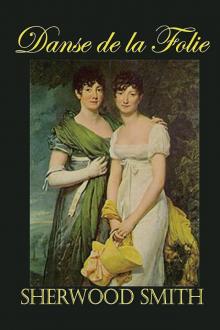 Danse De La Folie
Danse De La Folie King's Shield
King's Shield Whispered Magics
Whispered Magics Fleeing Peace
Fleeing Peace Barefoot Pirate
Barefoot Pirate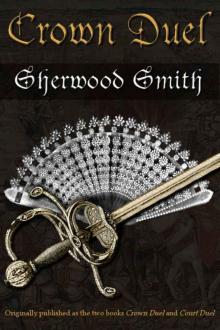 Crown Duel
Crown Duel Mearsies Heili Bounces Back
Mearsies Heili Bounces Back Commando Bats
Commando Bats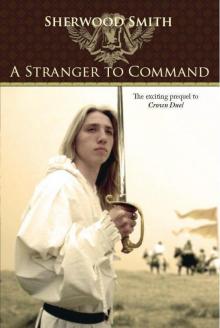 A Stranger to Command
A Stranger to Command Lhind the Spy
Lhind the Spy The Spy Princess
The Spy Princess Blood Spirits
Blood Spirits Sasharia en Garde
Sasharia en Garde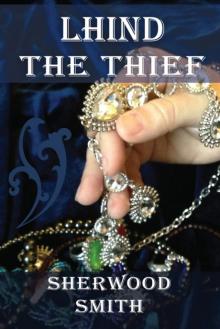 Lhind the Thief
Lhind the Thief Paradise Drift
Paradise Drift Banner of the Damned
Banner of the Damned The Trouble With Kings
The Trouble With Kings Poor World
Poor World Treason's Shore
Treason's Shore Wren Journeymage
Wren Journeymage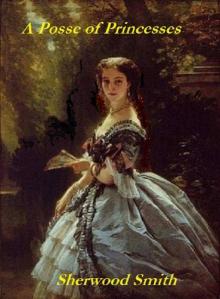 A Posse of Princesses
A Posse of Princesses Revenant Eve
Revenant Eve Once a Princess
Once a Princess Time of Daughters I
Time of Daughters I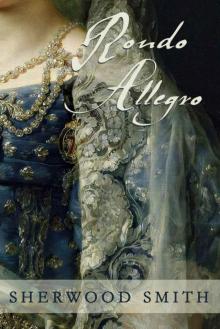 Rondo Allegro
Rondo Allegro Coronets and Steel
Coronets and Steel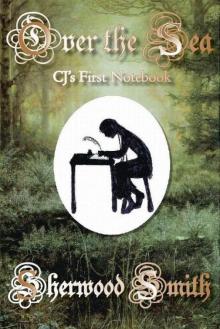 Over the Sea
Over the Sea Senrid
Senrid Hunt Across Worlds
Hunt Across Worlds A Sword Named Truth
A Sword Named Truth The Fox
The Fox Twice a Prince
Twice a Prince Fair Winds and Homeward Sail: Sophy Croft's Story
Fair Winds and Homeward Sail: Sophy Croft's Story Time of Daughters II
Time of Daughters II The Rifter's Covenant
The Rifter's Covenant The Phoenix in Flight
The Phoenix in Flight Stranger
Stranger The Thrones of Kronos
The Thrones of Kronos A Prison Unsought
A Prison Unsought Twice a Prince: Sasharia En Garde Book 2
Twice a Prince: Sasharia En Garde Book 2